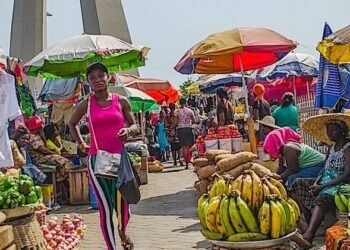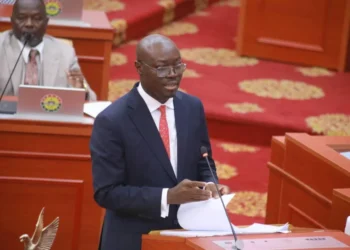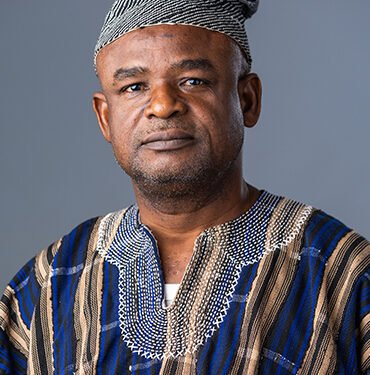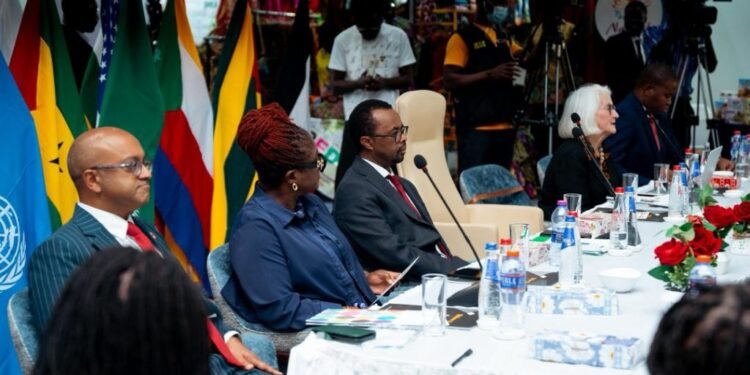Africa’s journey toward economic transformation is heavily reliant on private sector investments, particularly in addressing the continent’s infrastructure deficits.
The African Development Bank (AfDB) estimates that Africa needs between $130 billion and $170 billion annually to meet its infrastructure requirements, yet faces an annual financing gap of up to $100 billion. While some African nations are making significant strides in attracting private investments, Ghana is conspicuously absent from the list of the top 10 countries leading in this crucial area.
Infrastructure challenges have long stymied Africa’s growth, hindering progress in critical sectors such as energy, healthcare, agriculture, and digital technology. According to the World Bank, achieving sustainable development goals in Sub-Saharan Africa requires annual investments of about 7.1% of GDP, but current levels hover around 3.5%. Governments alone cannot bridge this gap, making private sector involvement indispensable.
The International Finance Corporation (IFC), a key player in promoting private sector investments, has intensified efforts to mobilize funds for Africa. In FY24, the IFC achieved a record $22.5 billion in funding, a 50% increase compared to FY23, with a significant portion allocated to Africa. These investments have been instrumental in driving renewable energy projects, expanding healthcare access, supporting agribusinesses, and enhancing digital infrastructure.
Top 10 African Countries Attracting Private Investments
The leading African countries in private sector investments have demonstrated remarkable innovation and robust policy frameworks to attract substantial private capital. These nations have successfully positioned themselves as top investment destinations through strategic initiatives aimed at fostering economic growth.
In FY24, South Africa led the pack, attracting $5.07 billion in private investments, followed by Nigeria with $3.96 billion and Egypt with $3.37 billion. These countries continue to leverage their economic potential and market size to draw significant investor interest.
Ethiopia emerged as a strong contender, securing $2.29 billion in private sector investments, reflecting its rapid infrastructural development and investment reforms. Cote D’Ivoire and Kenya followed closely, with investment inflows of $2.18 billion and $1.7 billion, respectively. These nations have capitalized on political stability and progressive economic policies to maintain their appeal to private investors. Guinea, which garnered $1.5 billion, highlights the growing interest in resource-rich nations.
Mozambique attracted $1.32 billion, showcasing its increasing prominence as an investment hub, particularly in the energy and natural resource sectors. Morocco, with $0.87 billion in investments, continues to benefit from its strategic location and thriving industrial zones. Meanwhile, Cameroon rounds out the top ten with $0.8 billion, underscoring its commitment to economic diversification and infrastructure development.
These nations’ success in attracting private sector investments stems from their emphasis on public-private partnerships (PPPs), streamlined regulatory environments, and the adoption of investor-friendly policies.
Ghana’s Missed Opportunity
Despite being one of West Africa’s most stable economies and a hub for trade and investment, Ghana is noticeably absent from this list. This omission raises questions about the country’s approach to attracting private capital, particularly in sectors like renewable energy, healthcare, and digital technology, which are critical for sustainable development.
Ghana’s exclusion from the list of top African countries attracting private sector investments can be attributed to several underlying challenges. Despite its stable investment climate, the country struggles with bureaucratic inefficiencies, regulatory inconsistencies, and high operational costs. These hurdles often discourage private sector participation, deterring potential investors from fully committing to the Ghanaian market.
A significant factor limiting Ghana’s appeal is its infrastructure deficit. Inadequate transportation networks, unreliable energy supply, and limited digital connectivity hinder the scalability and efficiency of private sector projects. These infrastructural gaps not only increase the cost of doing business but also create barriers to the seamless integration of private investments into the broader economy.
Additionally, while Ghana has made commendable progress in fostering public-private partnerships (PPPs), its framework lacks the depth and adaptability seen in more competitive markets like South Africa and Nigeria. The rigidity and limited scope of the existing PPP model reduce its effectiveness in attracting and sustaining large-scale private investments. This shortfall underscores the need for reforms that enhance the flexibility and appeal of these partnerships.
Access to affordable financing remains another critical challenge for Ghana. High interest rates and limited availability of funding options make it difficult for local businesses to secure the capital needed for expansion and innovation.
This financial constraint not only limits the growth of indigenous enterprises but also weakens the overall competitiveness of Ghana as an investment destination. Addressing these challenges is essential to positioning Ghana as a key player in attracting private sector investments.
Lessons from Leading Countries
To emulate the success of countries like South Africa and Nigeria, Ghana must focus on creating an enabling environment for private investments. This includes strengthening its PPP framework, simplifying regulatory processes, and offering incentives for investors in priority sectors.
For instance: South Africa has successfully leveraged its renewable energy programs to attract billions in private investments. Nigeria has capitalized on its vast market size and natural resources, coupled with targeted reforms in key sectors.
To attract more private sector investments, Ghana must prioritize the revision of its regulatory frameworks to simplify licensing processes and minimize bureaucratic hurdles. Streamlining these procedures will enhance investor confidence and create a more business-friendly environment.
Additionally, strengthening the country’s public-private partnership (PPP) framework by adopting best practices from leading nations can position Ghana as a hub for large-scale investments, particularly in critical infrastructure development.
Ghana should also focus on priority sectors with high growth potential, such as renewable energy, agribusiness, and digital technology, to attract diversified and sustainable investments.
Expanding access to finance is equally essential, and the government can promote this by supporting innovative funding mechanisms like blended finance, which reduce risks for private investors while encouraging financial inclusion. These measures, when implemented effectively, can significantly boost Ghana’s appeal as an investment destination and drive long-term economic growth.
Private capital is not just an option but a necessity for bridging Africa’s infrastructure gap. Ghana must rise to the challenge to ensure its inclusion in future rankings and, more importantly, to secure its place as a leader in Africa’s economic transformation.
READ ALSO: Court Orders EC to Complete Collation of Results in Four Constituencies























